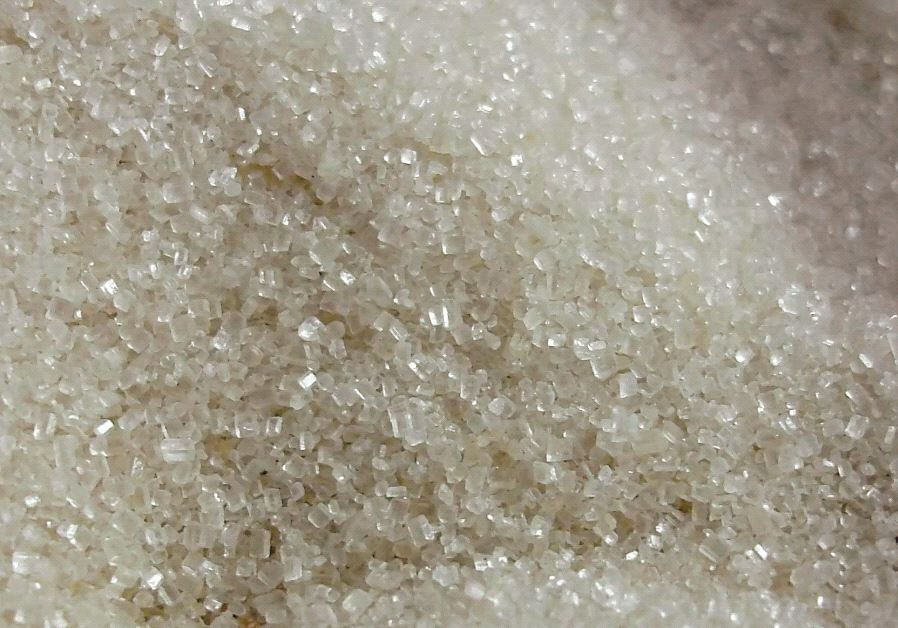Israeli startup hopes to take aftertaste from artificial sweeteners
Sugars are more simplistic molecules than proteins, which may make Amai’s discovery and its future application revolutionary.
 A close-up view of raw sugar(photo credit: Wikimedia Commons)
A close-up view of raw sugar(photo credit: Wikimedia Commons)